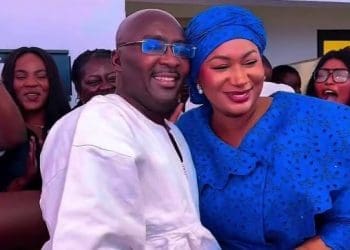Former Education Minister and the 2024 vice-presidential running mate of the New Patriotic Party (NPP), Dr. Matthew Opoku Prempeh, has made a resounding call for greater accountability and integrity in public service, urging political leaders and public office holders to uphold transparency as a foundational duty of governance.
Dr. Opoku Prempeh, affectionately known as “NAPO,” made the remarks in an interview following reports that he had been invited by the National Intelligence Bureau (NIB) in connection with his previous stewardship at the Ministry of Education.
The invitation, he explained, was part of routine oversight procedures that come with holding public office.
Dr Opoku Prempeh emphasised that anyone who accepts the responsibility of public service must also be prepared to justify their actions, especially when entrusted with public resources.
“It is a normal and necessary part of our democracy,” he said. “Being called upon to explain one’s stewardship is not a mark of guilt, but a healthy component of accountability.”
Dr. Opoku Prempeh’s comments come at a time when public discourse in Ghana is increasingly focused on corruption, transparency, and the ethical responsibilities of leadership.
With his role as the running mate to Dr. Mahamudu Bawumia in the 2024 presidential election still fresh in the public memory, his statements carry weight across the political spectrum.
He urged his colleagues in politics and governance to resist the temptation to view such official invitations or audits as politically motivated witch-hunts, cautioning that politicising standard checks erodes the democratic process and undermines institutions.
“This is not the first time someone has been asked to explain their stewardship, and it certainly won’t be the last. Being called does not mean you are guilty,” he stated, insisting that the mere act of responding to a public institution’s queries should be normalised and encouraged.
Matthew Opoku Prempeh also challenged the prevailing notion among some public officials that political office grants perpetual privilege. Instead, he framed public office as a temporary responsibility that carries serious consequences and moral obligations.
“Leadership is not about entitlement. It is a commitment to serve, and service demands accountability. That is the only way to maintain public trust,” he said.
Throughout his remarks, NAPO stressed the importance of integrity, both in and out of office.
He called on current and former public servants to remain open to scrutiny and to consider transparency as a tool for strengthening democracy and public confidence in state institutions.
The former Manhyia South legislator also took the opportunity to express confidence in Ghana’s democratic institutions, including the NIB, stating that their role in ensuring transparency and good governance should be supported rather than vilified.
Observers have noted that Dr. Opoku Prempeh’s public embrace of accountability sets a potentially powerful precedent for other high-ranking officials, particularly in an era where concerns over the misuse of public funds and opaque decision-making have triggered widespread public frustration.
His comments are being viewed by some political analysts as a strategic effort to model leadership by example, especially as the NPP prepares to mount a comeback in the 2028 general elections after a closely contested 2024 vote.
In recent years, Ghanaian civil society organisations and governance experts have intensified calls for stronger institutional accountability and public audits.
While some former officials have resisted such inquiries, citing political persecution, Dr. Opoku Prempeh’s stance offers a counter-narrative that frames scrutiny as not only necessary but patriotic.













